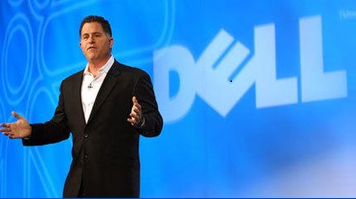Icahn: I'm done with Dell; Michael can have it

Carl Icahn has ended his chase for Dell, essentially leaving the company to founder Michael Dell and Silver Lake's best and final offer. Icahn, however, landed a few verbal jabs on the way out.

When we last left the Dell saga, Michael Dell and Silver Lake upped its offer to take the company private to $13.75 a share with a 13 cent per share special dividend. That bid basically matched what Icahn was offering.
Icahn said in a letter to Dell shareholders that the company was run by a dictatorship and said Michael Dell and dictators had a lot in common. Icahn said:
Although the board accepted Michael Dell/Silver Lake’s offer in February, it promised stockholders that the Company would hold a meeting at which stockholders could make the final decision as whether or not to accept the transaction. The board recommended that stockholders vote in favor of the proposed transaction because it was Michael Dell/Silver Lake’s “best and final offer”. Icahn and Southeastern argued that stockholders should not give up the huge potential of Dell and therefore should reject the proposed transaction. We won, or at least thought we won, but when the board realized that they lost the vote, they simply ignored the outcome. Even in a dictatorship when the ruling party loses an election, and then ignores its outcome, it attempts to provide a plausible reason to justify their actions. Andrew Bary at Barron’s wisely observed, “In an action worthy of Vladimir Putin, Dell postponed a vote scheduled for last Thursday on Michael Dell’s proposed buyout of the company when it became apparent that there was insufficient shareholder support for the deal.” But the Dell board felt they needed no excuse when they changed the voting standard and changed the record date of those eligible to vote, which allowed arbitrageurs to vote a much greater percentage of the stock when the polls reopen and scheduled the annual meeting for October. The board simply relied on the usual “business judgment” catchall and Delaware law to uphold their actions. We jokingly ask, “What’s the difference between Dell and a dictatorship?” The answer: Most functioning dictatorships only need to postpone the vote once to win.
Icahn said he couldn't win, but did note that his activism improved shareholder value. Icahn said:
While we of course are saddened at our losing the battle to control Dell, it certainly makes the loss a lot more tolerable in that as a result of our involvement, Michael Dell/Silver Lake increased what they said was their “best and final offer”.